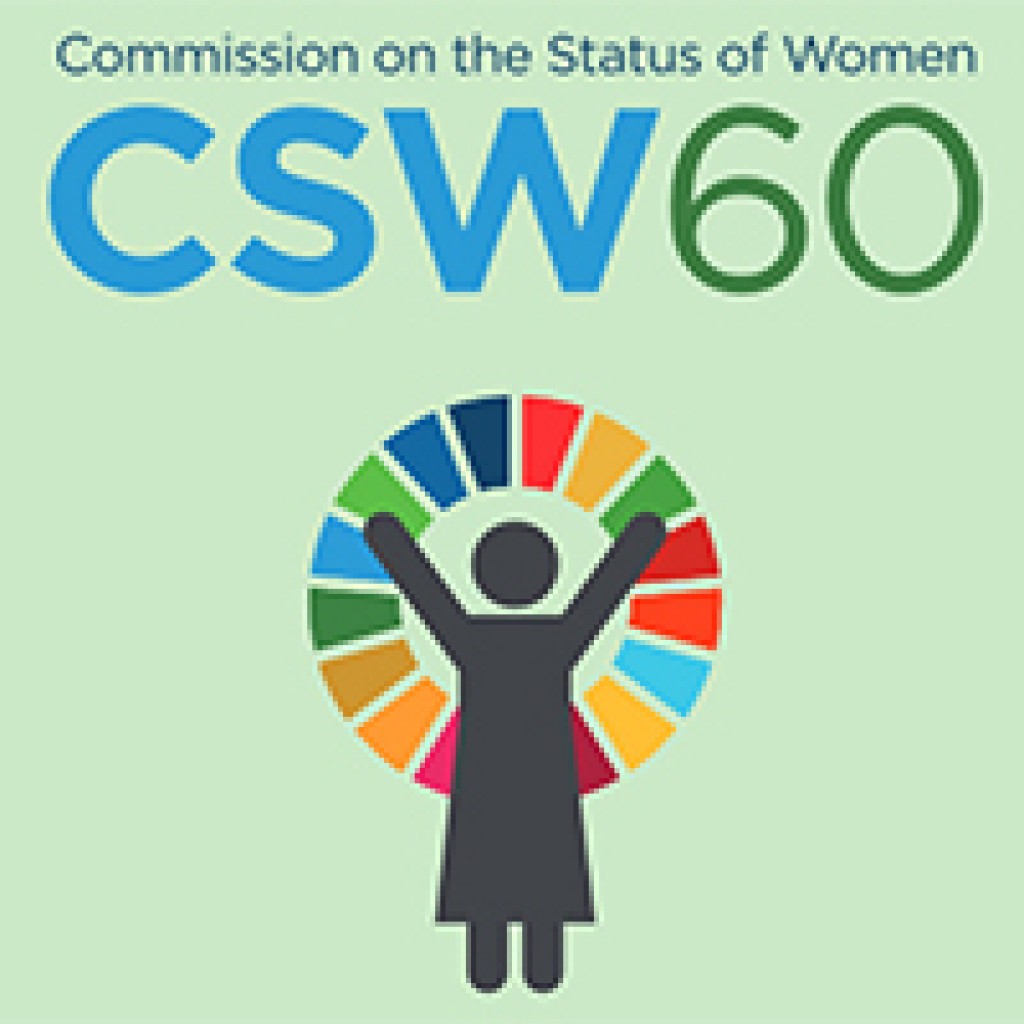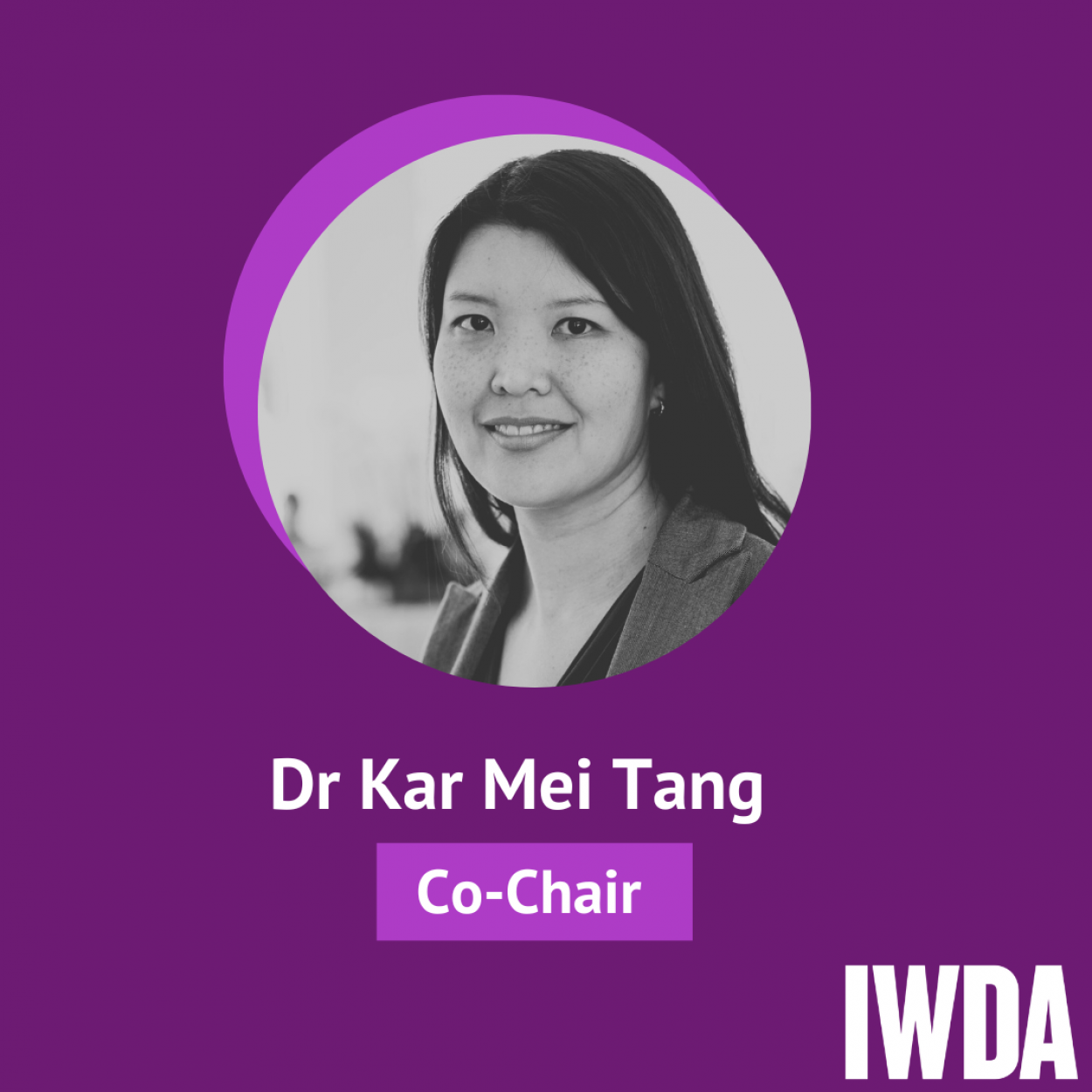
CSW60: A catalyst for new priorities and new approaches
For the next two weeks, representatives of UN Member States, civil society organisations and UN entities will be taking part in the annual session of the Commission on the Status of Women (CSW60) at the UN Headquarters in New York. CSW is the single largest forum for Member States and other stakeholders focused on the promotion of gender equality and the empowerment of women.

For the next two weeks, representatives of UN Member States, civil society organisations and UN entities will be taking part in the annual session of the Commission on the Status of Women (CSW60) at the UN Headquarters in New York. CSW is the single largest forum for Member States and other stakeholders focused on the promotion of gender equality and the empowerment of women. There will be more than 200 official ‘side events’ hosted by Member States and UN entities, plus 450 parallel events organised by civil society organisations. It’s a key time of debate, strategising and planning, and for drawing global attention to new data, reports or tools.
This is the first meeting of CSW since the adoption of the new 2030 Agenda for Sustainable Development. It is a chance to build on the momentum that the new agenda brings. On Monday, speaking at the opening of CSW60, UN Women Executive Director Phumzile Mlambo-Ngcuka underlined the importance of this moment, “CSW60 has to be a positive moment. It has to be as positive as we were at the adoption of Agenda 2030 last year… It is a moment for all of us to ‘Step it up’ with Agenda 2030 plans that are decisive, implementable and transformative.”
As decisions are made about how to move forward with this new agenda over the next two weeks, it is important for Member States and civil society to focus on the positive opportunities to move away from business as usual. It is also a crucial moment to ensure promises do lead to progress. The Global Goals framework has been criticised for its failure to incorporate strong accountability mechanisms and it is for this reason that CSW60 is particularly crucial. It is a space for Governments to confirm the importance of prioritising gender equality as they develop policies and structures to implement and monitor the global goals, targets and indicators.
The Australian Government delegation to CSW60 is led by Natasha Stott Despoja AM, our Global Ambassador for Women and Girls, together with representatives from the Office for Women, Department of Foreign Affairs and Trade and civil society. We are disappointed that the Minister for Women, Senator the Hon Michaelia Cash was unable to join the delegation, but delighted that the delegation can draw on the experience of two very able civil society representatives, Sarah Boyd and Anu Mundkur, who are both members of the Australian Civil Society Coalition on Women, Peace and Security. You can find out more about Australian civil society activities via the Australian Civil Society at CSW60 website and the Australian NGOs at CSW Facebook page.
We urge the Australian Government to use CSW60 as a catalyst for ensuring gender equality and women’s empowerment is at the centre of monitoring and implementation arrangements for the Global Goals across Government, including by:
Confirming the role of women’s rights organisations and networks
Women’s rights organisations and networks, both at home and abroad, have a key role to play in ensuring that the promise of the Global Goals is realised. As a crucial source of real time information on progress, gaps and barriers, their contribution to monitoring and review processes for the Global Goals needs to be resourced, including through creating spaces for regular and informed consultation. IWDA recommends that the Australian Government consider a Global Goals Women’s Rights and Gender Equality advisory board, bringing together members from across government and civil society representatives with both a domestic and an international focus, to enable ongoing consultation and shared expertise. Establishing a link with the work of National Women’s Secretariats would provide depth and a connection to wider networks and communities.
Targeting resources
IWDA urges the Australian Government to increase funding support for women’s rights organisations and networks and to increase its expenditure on investments which target gender equality as a principle objective. Research across 70 countries and four decades has shown that feminist civil society mobilising is a more important influence on achieving gender-progressive policies than left wing political parties, women in government or economic factors like national wealth.[1] Improving the ability to track and report how much is spent on gender equality and women’s empowerment is also critical if the Government is to maximise the effectiveness of these investments.
Transformative measurement
There is a wealth of information and understanding about gender equality and women’s empowerment, which should inform the measurement of progress. Understanding how high level goals are translating into changed lives for individuals is key to realising the promise of inclusion, summarised in the pledge to ‘leave no one behind.’ The Individual Deprivation Measure, which IWDA has helped to develop, is one tool that could be used to assess what is changing, for whom, in relation to 15 key areas of life.
Establishing a whole-of-government coordinating mechanism
The 2030 Sustainable Development Agenda is wide ranging, reflecting the breadth of global challenges and opportunities. It has been agreed by all governments, including Australia, and has relevance for domestic policies and programs and for Australia’s international engagements. A national action plan overseen by the Council of Australian Governments (COAG) could provide a streamlined mechanism for coordinating a whole of government approach to managing, realising and reporting Australian action towards the Global Goals. Including shorter-term targets as stepping stones would assist consistent progress towards the 2030 deadline, supported by specific financial commitments.
CSW60 is an exciting moment to consider the possibilities ahead of us on the journey to 2030. IWDA will share links to key sessions over the next two weeks and you can also watch events live.
[1] Mala Htun & S.Laurel Weldon, ‘The Civic Origins of Progressive Policy Change: Combating Violence against Women in Global Perspective, 1975–2005’, American Political Science Review Vol. 106, No. 3 August 2012. http://journals.cambridge.org/download.php?file=%2FPSR%2FPSR106_03%2FS0003055412000226a.pdf&code=25d33f77bef5d6e450aadfcbedad50cd


